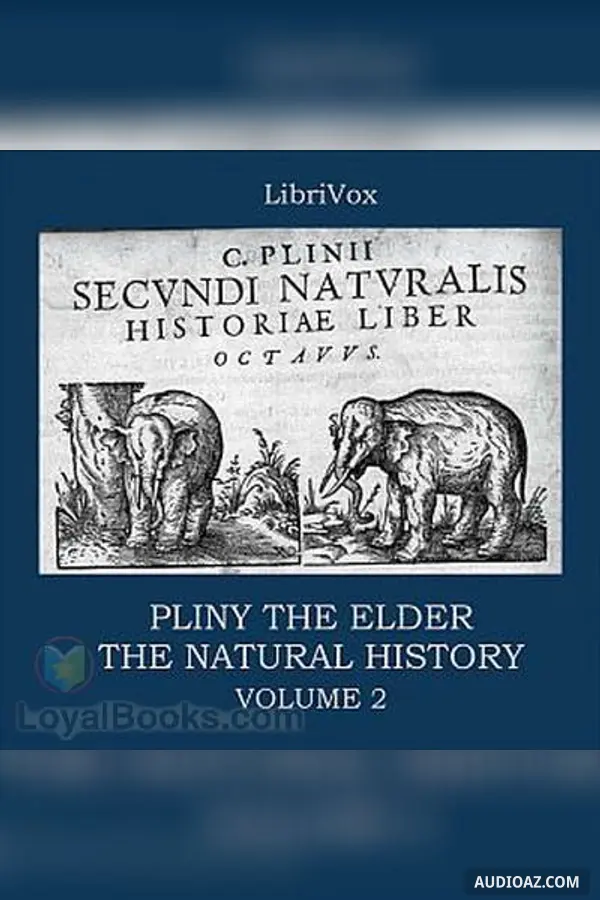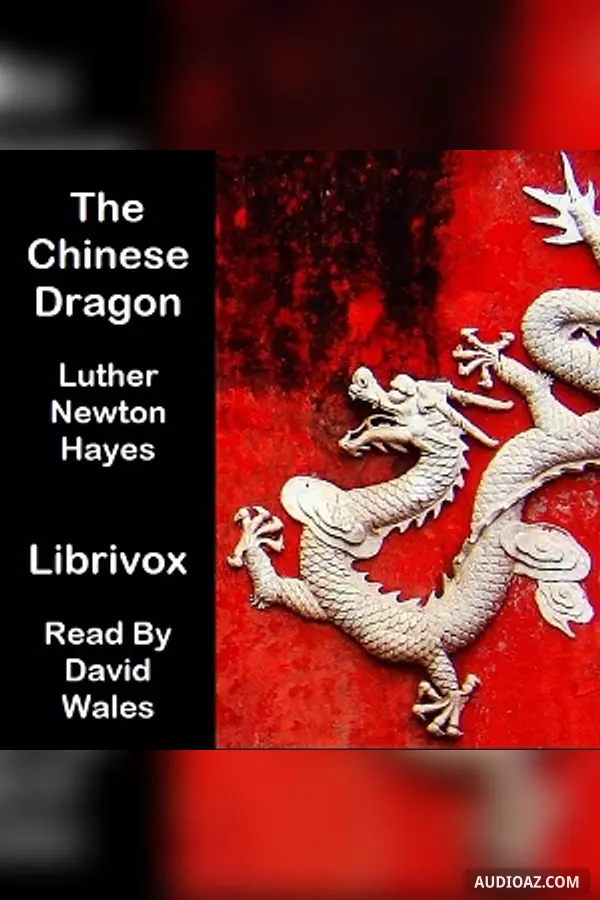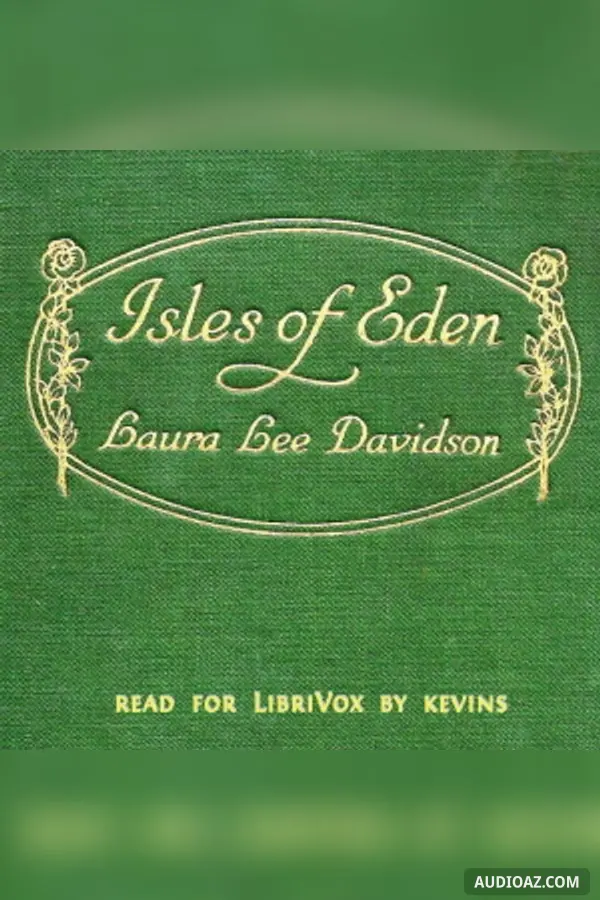
The Natural History, volume 2 - Sách nói Miễn phí
Tác giả: Pliny the Elder
Ngôn ngữ: English
Thể loại: Văn bản cổ đạiKinh điển (Cổ đại Hy Lạp & La Mã)Thiên nhiênPhi hư cấu
1 / 4201 - Book 6, Chapters 1-5: The Euxine and the Maryandini
- 1. 01 - Book 6, Chapters 1-5: The Euxine and the Maryandini
- 2. 02 - Book 6, Chapters 6-14: The Cimmerian Bosporus
- 3. 03 - Book 6, Chapters 15-20: The Caspian and Hyrcanean sea
- 4. 04 - Book 6, Chapters 21-23: The nations of India
- 5. 05 - Book 6, Chapters 24-26: Taprobane
- 6. 06 - Book 6, Chapters 27-31: Carmania
- 7. 07 - Book 6, Chapters 32-34: Arabia
- 8. 08 - Book 6, Chapters 35-37: Aethiopia
- 9. 09 - Book 6, Chapters 38-39: The comparative distances of places on the face of the earth
- 10. 10 - Book 7, Chapters 1-4: Man; the wonderful forms of different nations; marvellous births
- 11. 11 - Book 7, Chapters 5-13: Indications of the sex of the child during the pregnancy of the mother
- 12. 12 - Book 7, Chapters 14-23: The theory of generation
- 13. 13 - Book 7, Chapter 24-31: Memory; vigour of mind
- 14. 14 - Book 7, Chapters 32-44: Precepts the most useful in life
- 15. 15 - Book 7, Chapters 45-50: Ten very fortunate circumstances
- 16. 16 - Book 7, Chapters 51-56: Various instances of diseases; death
- 17. 17 - Book 7, Chapter 57: The inventors of various things
- 18. 18 - Book 7, Chapters 58-60: The things about which mankind first of all agreed
- 19. 19 - Book 8, Chapters 1-12: Elephants: their capacity
- 20. 20 - Book 8, Chapters 13-22: Dragons
- 21. 21 - Book 8, Chapters 23-35: Panthers
- 22. 22 - Book 8, Chapters 36-47: The ichneumon
- 23. 23 - Book 8, Chapters 48-56: Bramble-frogs
- 24. 24 - Book 8, Chapters 57-69: The leontophonus and the lynx
- 25. 25 - Book 8, Chapters 70-76: Oxen: their generation; the Egyptian Apis
- 26. 26 - Book 8, Chapters 77-84: The hog; the wild boar
- 27. 27 - Book 9, Chapters 1-6: Why the largest animals are found in the sea
- 28. 28 - Book 9, Chapters 7-16: Dolphins; human beings who have been beloved by dolphins
- 29. 29 - Book 9, Chapters 17-24: which of the fishes are of the largest size
- 30. 30 - Book 9, Chapters 25-37: Fishes which conceal themselves during the summer
- 31. 31 - Book 9, Chapters 38-49: Eels; the murena; various kinds of flat fish
- 32. 32 - Book 9, Chapters 50-53: Sea-animals which are enclosed with a crust
- 33. 33 - Book 9, Chapters 54-59: pearls: how they are produced, and where
- 34. 34 - Book 9, Chapters 60-67: The nature of the murex and the purple
- 35. 35 - Book 9, Chapters 68-78: Bodies which have a third nature
- 36. 36 - Book 9, Chapters 79-88: The first person that formed artificial oyster-beds
- 37. 37 - Book 10, Chapters 1-12: The ostrich; the phoenix; the different kinds of eagles
- 38. 38 - Book 10, Chapters 13-32: The classification of birds; crows; birds of ill omen
- 39. 39 - Book 10, Chapters 33-49: Foreign birds which visit us; swallows
- 40. 40 - Book 10, Chapters 50-62: The acanthyllis and other birds; the merops - partidges
- 41. 41 - Book 10, Chapters 63-81: The mode of drinking with birds; the porphyrio; the haematopous
- 42. 42 - Book 10, Chapters 82-98: Terrestrial animals that are oviparous; various kinds of serpents
Giới thiệu
Naturalis Historia (Latin for "Natural History") is an encyclopedia published circa AD 77-79 by Pliny the Elder. It is one of the largest single works to have survived from the Roman empire to the modern day and purports to cover the entire field of ancient knowledge, based on the best authorities available to Pliny. The work became a model for all later encyclopedias in terms of the breadth of subject matter examined, the need to reference original authors, and a comprehensive index list of the contents. The scheme of his great work is vast and comprehensive, being nothing short of an encyclopedia of learning and of art so far as they are connected with nature or draw their materials from nature. The work divides neatly into the organic world of plants and animals, and the realm of inorganic matter, although there are frequent digressions in each section. He is especially interested in not just describing the occurrence of plants, animals and insects, but also their exploitation (or abuse) by man, especially Romans. The description of metals and minerals is particularly detailed, and valuable for the history of science as being the most extensive compilation still available from the ancient world.
Bình luận
Hãy là người đầu tiên bình luận
Chưa có bình luận nào về nội dung này. Hãy bắt đầu cuộc trò chuyện!
Khám phá thêm
Thẻ: The Natural History, volume 2 audio, The Natural History, volume 2 - Pliny the Elder audio, Văn bản cổ đại audio, Kinh điển (Cổ đại Hy Lạp & La Mã) audio, Thiên nhiên audio, Phi hư cấu audio, free audiobook, free audio book, audioaz






